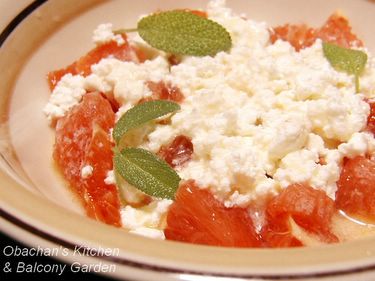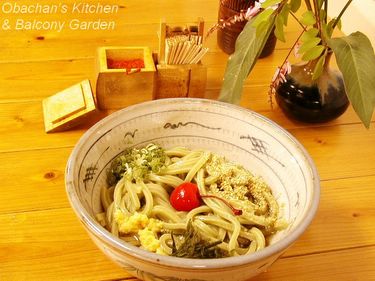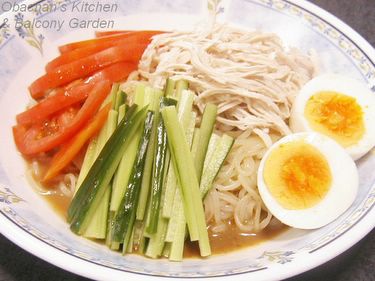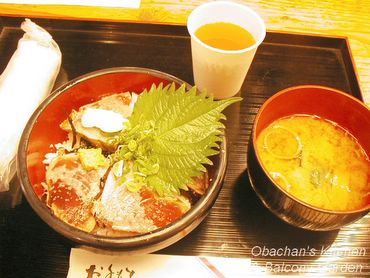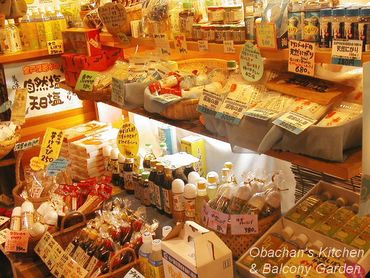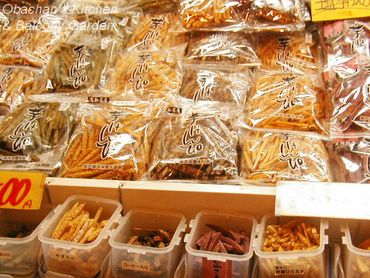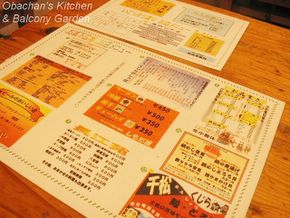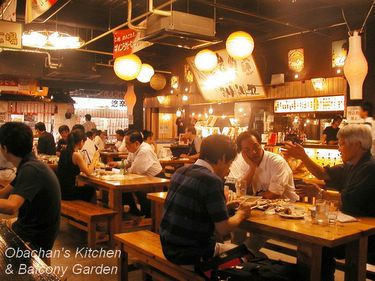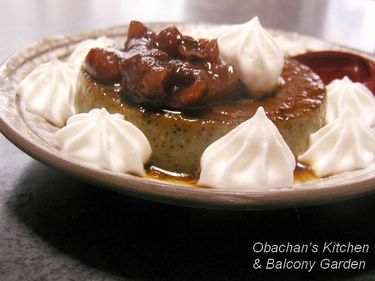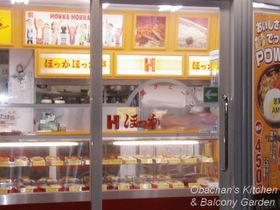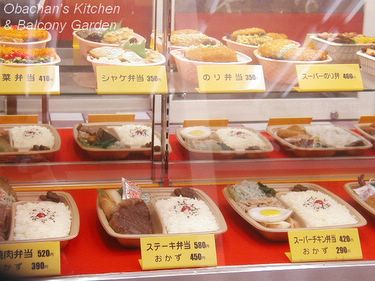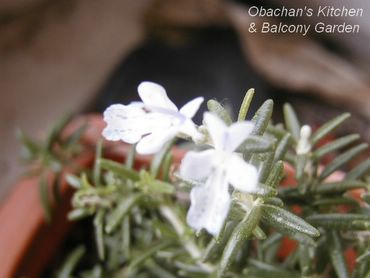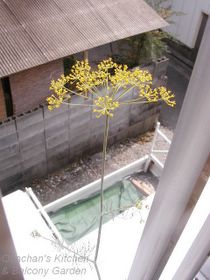|
Thursday, July 28, 2005
National "Unagi" Day?!
Posted by
obachan
at
7/28/2005 12:55:00 AM
19
comments
![]()
Labels: Rice dish
Monday, July 25, 2005
Ruby Red Grapefruit & Cottage Cheese Salad
|
Posted by
obachan
at
7/25/2005 05:45:00 PM
8
comments
![]()
Labels: Salad/Dressing
Saturday, July 23, 2005
Rhubarb Cupcakes
|
Posted by
obachan
at
7/23/2005 06:35:00 PM
9
comments
![]()
Labels: Cakes
Wednesday, July 20, 2005
A La Provancale??
|
Posted by
obachan
at
7/20/2005 02:02:00 PM
6
comments
![]()
Labels: Fish
Thursday, July 14, 2005
Kawa-Udon
|
Posted by
obachan
at
7/14/2005 11:56:00 PM
11
comments
![]()
Labels: Noodles
Nice tea time I had today
|
Posted by
obachan
at
7/14/2005 11:02:00 PM
7
comments
![]()
Wednesday, July 13, 2005
Reimen, Not Ramen
|
Posted by
obachan
at
7/13/2005 10:51:00 PM
19
comments
![]()
Labels: Noodles
Food at Hirome 1 -- Shio-Tataki Donburi --
|
Posted by
obachan
at
7/13/2005 12:48:00 AM
2
comments
![]()
Labels: Rice dish
My Favorite Place - Hirome Ichiba -
|
Posted by
obachan
at
7/13/2005 12:43:00 AM
8
comments
![]()
Sunday, July 10, 2005
Ooops! -- Matcha Custard Pudding --
|
Posted by
obachan
at
7/10/2005 04:54:00 PM
5
comments
![]()
Saturday, July 09, 2005
OK, Let's Talk about Bento
The topic has been brought up in the comments to my previous post, so why not ;) |
Posted by
obachan
at
7/09/2005 04:49:00 PM
12
comments
![]()
Labels: Bento
Wednesday, July 06, 2005
Open Sandwich
|
Posted by
obachan
at
7/06/2005 05:09:00 PM
13
comments
![]()
Monday, July 04, 2005
Garden Report -July 2005
My herbs are definitely doing much better this year! |
Posted by
obachan
at
7/04/2005 03:09:00 PM
5
comments
![]()
Saturday, July 02, 2005
Rosemary Scones
|
Posted by
obachan
at
7/02/2005 01:38:00 PM
3
comments
![]()
Labels: Biscuits/Scones
Friday, July 01, 2005
Food at Wanuke-Sama
I went to a nearby shrine for a religious festival called “Wanuke-sama.” It is held on the last day of June every year in and around Kochi city (I guess??). For more information about this festival, click here. |
Posted by
obachan
at
7/01/2005 11:25:00 AM
11
comments
![]()
Labels: Special occasions


















 Right outside a big supermarket, two guys were selling broiled eels. It’s not included in this photo, but there was a small BBQ grill next to this table and they were broiling the eels over charcoal. The young guy there was rather unhappy because I took a shot of the products they were selling only, not him. I didn’t have a nerve to just take a photo and say good bye, so I bought one there. The sauce came in a small plastic bag with the eel.
Right outside a big supermarket, two guys were selling broiled eels. It’s not included in this photo, but there was a small BBQ grill next to this table and they were broiling the eels over charcoal. The young guy there was rather unhappy because I took a shot of the products they were selling only, not him. I didn’t have a nerve to just take a photo and say good bye, so I bought one there. The sauce came in a small plastic bag with the eel.